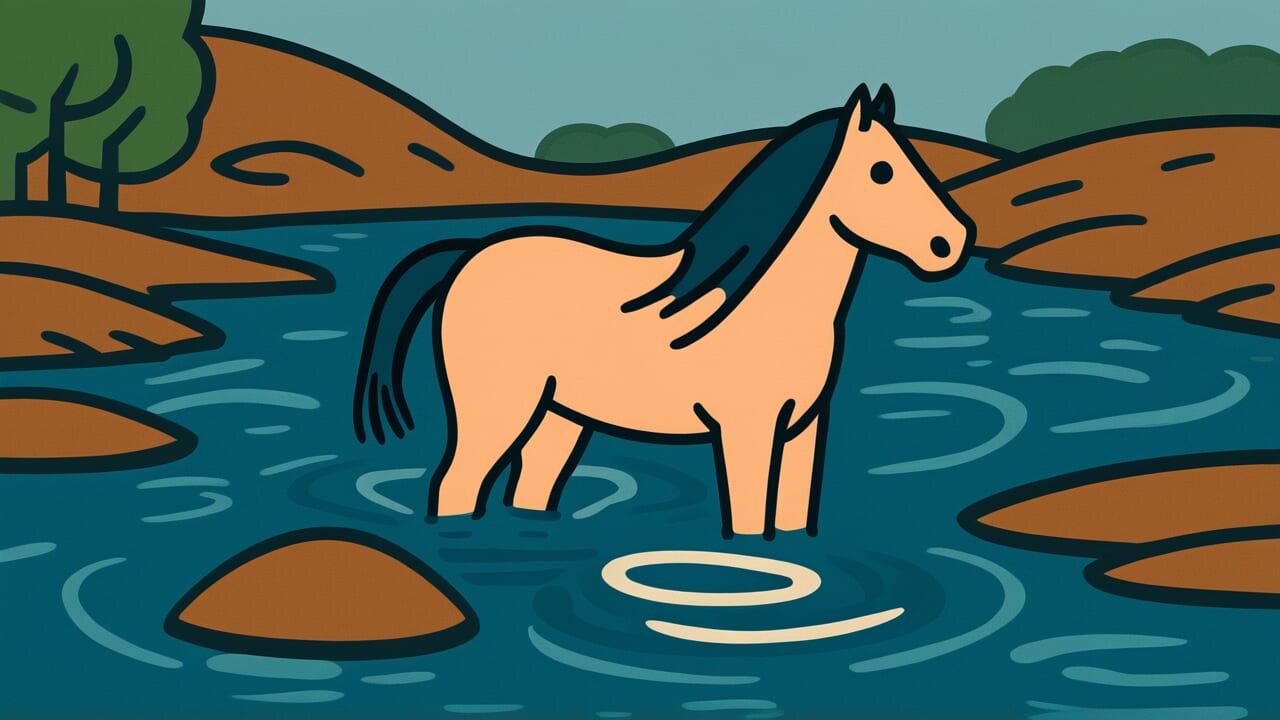How to Read “A substitute horse doesn’t think of the leap”
Daiba koshi wo omowazu
Meaning of “A substitute horse doesn’t think of the leap”
This proverb expresses the natural human feeling that the place where you were born and raised is the best.
No matter how convenient or impressive a new place might be, your hometown or the land where you lived for years holds special meaning.
People use this saying when someone who moved to a new environment feels nostalgic for home.
It also applies when someone rediscovers the goodness of their birthplace. It perfectly captures the feelings of someone who moved to the city but misses the countryside.
It also describes someone transferred far away who longs for their former home.
In modern times, globalization lets us live anywhere in the world. Yet people still maintain special attachment to their roots.
This proverb accurately captures this unchanging aspect of human nature.
Origin and Etymology
This proverb is believed to come from ancient Chinese classics.
“Dai” refers to a northern region of China, while “Etsu” refers to a southern region. “Horse” represents the Dai region.
According to one theory, the original form included the character for “bird” in the “Etsu” part. The full phrase was “Daiba Etchō wo omowazu.”
A horse raised in the northern Dai region wouldn’t miss its homeland even when taken to the southern Etsu region.
Similarly, a bird raised in southern Etsu wouldn’t think of home when moved north. This was the original meaning.
However, this was actually a paradoxical expression. The implied meaning was that horses and birds do miss their homelands.
When the saying came to Japan, the “bird” part was dropped. It became “A substitute horse doesn’t think of the leap.”
The structure suggests a deeper lesson. If even animals moved to different lands miss their homes, humans naturally feel even stronger nostalgia for their birthplaces.
This proverb shows the wisdom of our ancestors. They compared the universal emotion of attachment to home with animal instincts.
Usage Examples
- Even after succeeding overseas, I feel “A substitute horse doesn’t think of the leap” – my hometown is still the best
- Feeling more comfortable in my childhood town than any luxury neighborhood shows “A substitute horse doesn’t think of the leap”
Universal Wisdom
This proverb teaches us the truth that humans need “a place to return to.”
We move forward and set out seeking new worlds. Yet deep in our hearts, we want to cherish our origins.
Why do people think of their hometowns? Because the place where you were born and raised isn’t just a geographical location.
It’s part of your identity. Childhood memories are soaked into that place. Family moments, first experiences of joy and sadness all live there.
The scenery, smells, dialects, and food of home connect with the deepest parts of our hearts.
This emotion shows that humans are fundamentally “beings who live through relationships.”
We aren’t isolated individuals. We grow and are shaped through connections with places and people. No matter how far we go, those roots don’t change.
Our ancestors understood this unchanging human nature. Seeking progress and development is important.
But not forgetting your roots is equally important. This proverb has been passed down through generations because human nature stays the same even as times change.
When AI Hears This
The essence of this proverb lies in the non-linearity of causal chains.
The sequence – horse escapes → good horse returns → son falls → war survival – forms a feedback loop. Each stage’s result becomes the next stage’s cause.
The key point is that the amplification rate at each stage isn’t constant.
Meteorologist Lorenz discovered the butterfly effect. A difference of just 0.000001 in initial values produces completely different weather maps weeks later.
This story has the same structure. If two horses had escaped instead of one, or if the son broke his left foot instead of his right, the outcome might have changed completely.
The system’s “sensitivity” is extremely high.
More interesting is that there’s no intervention point in this chain. Even if Sai Weng did his best at each stage, he couldn’t predict what would happen next.
This is the very characteristic of deterministic chaos. Even systems that can be completely described by equations make practical prediction impossible.
Modern climate models can calculate 100 years ahead but can’t accurately predict next month’s weather. It’s the same reason.
Ancient Chinese thinkers grasped this truth without equations. They embedded the paradox that the world is determined but unreadable into a story.
Lessons for Today
This proverb teaches us living today to value “cherishing your roots.”
Globalization advances and we can go anywhere. That’s exactly why knowing where you came from becomes important.
Treasuring your hometown or familiar places isn’t backward-looking. It’s an essential foundation for understanding yourself and maintaining mental stability.
Even when taking on new challenges, the security of having a place to return to gives you courage.
In modern society, many people leave home for work transfers or school. But you can maintain emotional connections even when physically distant.
Occasionally visiting home or staying in touch with local friends lets you confirm your origins.
This becomes an anchor for you living in rapidly changing times. Cherishing your roots while stepping into new worlds.
This proverb gently teaches such a balanced way of living.



Comments